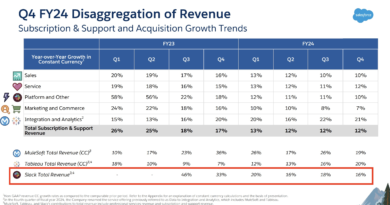Exponent Founders Capital, led by Plaid and Robinhood alums, raises $75M to invest in early-stage startups
Exponent Founders Capital, an early-stage venture firm founded by alumni of startups such as Plaid, Robinhood and Ramp, has closed on $75 million in capital commitments, TechCrunch is the first to report.
The firm, which is emerging from stealth today, raised $50 million for its first fund in November of 2021.
Managing Partners Charley Ma and Mahdi Raza co-founded Exponent after meeting while Ma was leading fintech growth at Plaid, and Raza was leading growth and payments at Robinhood. At the time, Robinhood was one of Plaid’s largest customers, so the pair often found themselves on opposite sides of the negotiating table.
The pair invested separately as angels before teaming up to start their own venture firm.
Exponent, which focuses on enterprise SaaS, fintech, infrastructure and GTM (go to market) software companies, invested in about 40 startups out of its first fund. Among those startups are Apollo.io (which raised $100 million at a $1.6 billion valuation in August), observability platform Chronosphere (which raised $115 million at a $1.6 billion valuation in January) and legal-tech startup EvenUp (which raised $50.5 million in June).
The firm has already had some exits, as well, including software startup Tactic being sold to TaxBit earlier this year and other deals Ma says will be disclosed “soon.” As angel investors, the pair backed the likes of Modern Treasury, Unit, Moov, Lithic, Persona, Stytch and Persona, among others.
Ma was one of the first business hires at Plaid where he led the fintech and developer sales vertical in San Francisco and helped build out the company’s New York office. Later, he was one of the first business hires at expense management startup Ramp and helped launch its corporate card as that startup’s head of growth. More recently, Ma served as the head of growth at Alloy, an identity and risk infrastructure platform for financial institutions.
Raza became an operator after roles in fintech and technology investment banking at Evercore and investing at GIC. He worked in growth and payments at Robinhood before joining Stytch to lead early growth there.
“A big shift for us in fund one was moving upwards in ownership from our typical ‘friendly’-sized angel check, to being one of the larger investors in the round, to outright leading and pricing early-stage rounds,” he told TechCrunch. In fact, when investing out of its first fund in 2023, the firm led or co-led the rounds of all the companies in which it invested.
Investment thesis
Exponent’s check size depends on the round dynamics, but can range from $500,000 to $5 million. Ma said. The firm aims for minimum 5% to 10% ownership in the companies in which it backs.
Seventy-five percent of the firm’s new fund will be used toward investing at the early stage, including pre-seed rounds. The remainder is reserved for follow-on investing. Exponent is focused on investing in the U.S. and Europe.
The second fund close was oversubscribed, according to Ma, who cites Carnegie Mellon University, Cook Children’s Health Care System, LGT Group and Next Legacy as some of Exponent’s limited partners (LPs). The firm plans to invest in 20 to 30 companies out of its second fund.
“We are a thematically focused, generalist firm covering all parts of enterprise software — including vertical AI, infrastructure and applied AI — and fintech and payments,” Ma said. “In particular, we’re excited by the opportunity for services and outputs as software, building core necessary workflows across customer experiences in many domains.”
“Over time, we’ll continue to add new themes into our arsenal — as an example, recently we’ve been going deep into legal services, pharmaceutical workflows and core banking infrastructure,” he added.
Lessons learned
The pair believe their backgrounds as both operators and angel investors gives them an edge as investors.
“The most important lesson we’ve learned is how to approach problems from a first principles perspective. Every company that we’ve worked for has gone through different periods of growth and each also had very different GTM motions,” Ma said. “We found that trying to apply a framework that worked in one company, rarely worked directly at another and is in fact a common trap that many former executives and founders fall into when working with new companies. What’s more important is asking the right questions and going as deep as possible into figuring out what’s blocking growth across GTM, product, team, market, customers, etc.”
Fundraising as an emerging manager in 2023 was “definitely not easy,” Ma admits.
“Everyone we talked to gave us the advice that this was the worst time to fundraise in the last decade, but we were starting to get pulled into a few institutional LP conversations, so we decided to kick off our fundraise in earnest in April,” Ma said. “We were deliberately targeting long term, nonprofit institutional investors for fund 2 with a target of $60 million and a hard cap of $75 million.”
Want more fintech news in your inbox? Sign up for The Interchange here.




